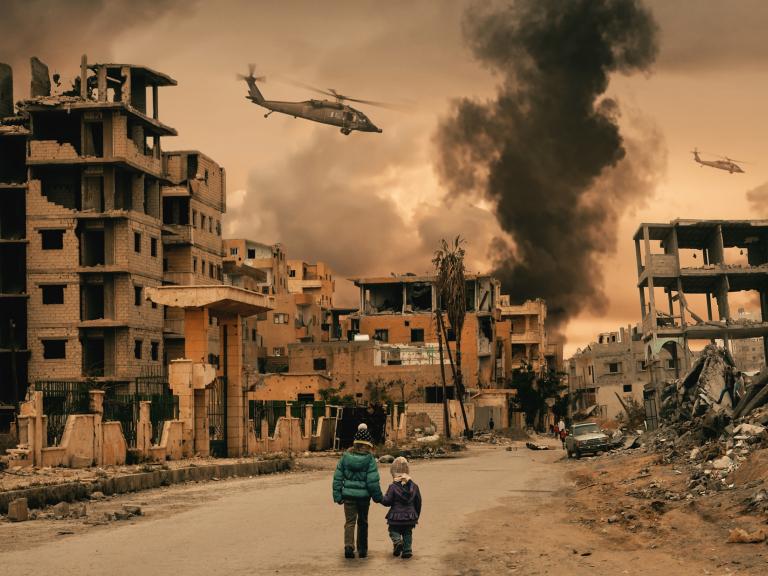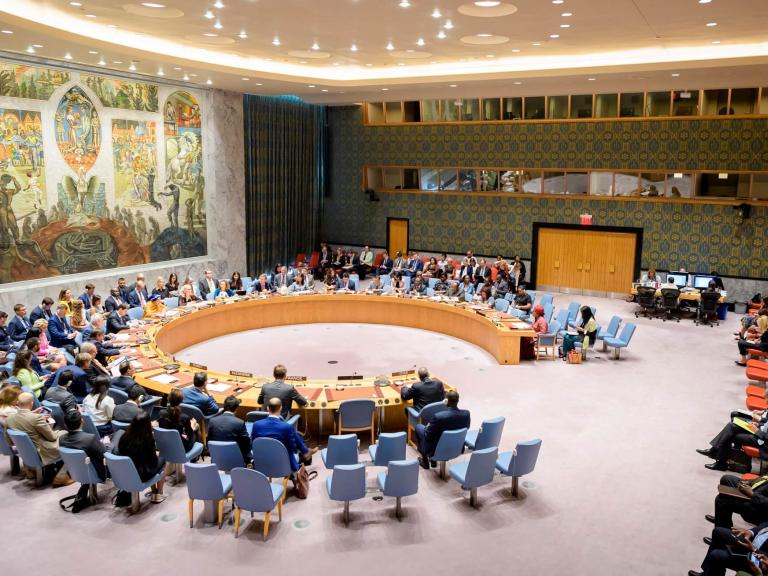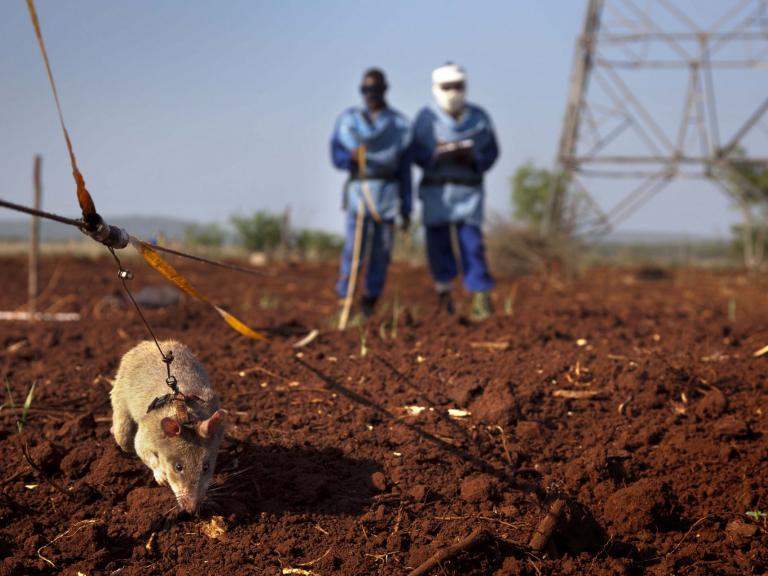-
Last updated on

A diamond mine in Kimberley (Australia). © Shutterstock
Do you have blood on your hands when you are wearing a diamond ring? Quite unlikely nowadays, but the risk was much higher in the 1990s, when brutal civil wars waged in several African countries such as Angola and Sierra Leone. Rebel groups used the revenues from diamond mines to fund their violent activities. The concept of 'blood diamonds' became commonplace through film and literature.
Certification scheme
The United Nations has sought to root out these abuses. In 2003, the UN General Assembly established the 'Kimberley Process', named after the diamond city of Kimberley in South Africa, in order to ban blood or conflict diamonds. Conflict diamonds were defined as 'rough diamonds used by rebel movements or their allies to finance armed conflicts aimed at undermining legitimate governments recognised by the UN.'
'The Kimberley Process brings together governments, the diamond industry and civil society to guarantee conflict-free diamonds', explains Joris Totté, responsible for the follow-up of this dossier at the FPS Foreign Affairs. 'Adhering countries commit themselves to implement national legislation and to control whether the import and export of diamonds is in accordance with a 'certification scheme'. Every shipment of rough diamonds requires a certificate confirming that they are conflict-free. Participating countries promise transparency and may only trade with countries that also apply the Kimberley Process.’
Today, there are 54 participants, representing 82 countries. The EU counts as one participant. Each year, a different country holds the presidency and organises a major conference. The EU, for instance, organised such a conference at the Egmont Palace in 2018. Together, the participants represent 99 percent of world production and trade in rough diamonds. Currently, 98.8 percent of rough diamonds traded are reportedly conflict-free.
Unique formula
The success seems to stem from the unique formula. 'Countries that do not participate are excluded from the diamond trade,' explains Totté. 'Countries therefore have every interest in cooperating. They are expected to give the most accurate estimate possible of the diamonds’ value. In Antwerp, a team of 17 employees from the FPS Economy very carefully checks all diamond shipments. Undervalued diamonds cannot enter the country. Correctly valued diamonds generate more income, which benefits the local population. That should be the ultimate goal.'
'The Kimberley Process turned out to be a tool to help resolve conflicts', Totté says. 'When rebel groups lose their source of income, they are forced to give up the fight. This simultaneously benefits the local population - artisanal miners or creuseurs - because they no longer have to hand over profits to warlords'.
Too narrow a definition
The Kimberley Process still has room for improvement. The problem lies in the rigid definition. Totté: 'As the most committed member within the EU, Belgium wants to broaden the definition. Today, the notion of 'rebel group' is far too limited. In Zimbabwe, for instance, private militias used violence against the local population in an area with many diamond mines. As no rebel groups were involved, this did not fall under the Kimberley Process. The process should also pay more attention to climate change and human rights.’
However, changing the definition will be a long-term task. 'Decisions must be made by consensus. A number of African countries are reluctant to adopt a broader definition because it could restrict their freedom of movement as governments. Countries where artisanal mining is prevalent believe that a new definition will impose restrictions on their natural resource policies. Other countries fear competition for their synthetic diamonds, which by definition are completely conflict-free.'
Some NGOs have left the Kimberley Process because they find it is too slow. Belgium, however, believes in reforming the process, and will not waver in pushing for a broader definition.

No less than 86 percent of the world trade in rough diamonds goes through Antwerp. © Shutterstock
Belgium diamond country
The fact that Belgium is so closely involved in the Kimberley Process can, of course, be explained by its position in the diamond trade. No less than 86 percent of the world trade in rough diamonds - and 50 percent in polished diamonds - goes through Antwerp. Annual trade amounts to 37 billion dollars. In Belgium, the diamond sector accounts for 6,600 direct jobs and 26,000 indirect jobs.
'But this is not just about economics', says Totté. 'Belgium has a strategic interest in Africa, which is home to a number of large diamond countries. Our country believes that sustainable development and the mining of diamonds, and by extension of all raw materials, is crucial for the development of these countries. It must benefit the local population'.
This is why the Antwerp World Diamond Centre (AWDC) is organising the second African Diamond Conference in May 2020, which will be held in South Africa. Totté: 'The first edition, in 2017, took place in Antwerp. The AWDC created a forum for joint reflection on the sustainable and responsible management of natural resources in Africa. This will also allow Belgium to strengthen the ties with diamond-producing countries in Africa.'
The EU also supports participating countries. 'An embargo against non-complying countries solves little in itself and has only disastrous consequences for the local population,' says Totté. 'It is better to help those countries in setting up systems to guarantee that their diamonds are conflict-free.' The EU is doing this in Côte d'Ivoire, Guinea, Liberia and Sierra Leone, among others. The Belgian Development Agency (Enabel) assists the Central African government on behalf of the EU.
In any case, the Kimberley Process is far from completed. In addition to the broader definition of conflict diamonds, it also wants to work more professionally with a real secretariat. Mutual monitoring (or 'peer review'), in which participating countries regularly monitor each other, should also be strengthened. Belgium will actively contribute to this.
More on Peace & security

Children and armed conflict: a priority for Belgium
During its two-year membership (2019-2020) of the UN Security Council, Belgium attaches great importance to ‘children and armed ...

Behind the scenes at the Security Council
Belgium is halfway through its two-year term as a member of the UN Security Council. What exactly does our country do there?

Rats save lives
APOPO uses rats for detecting landmines and tuberculosis. A success story with Belgian roots.
